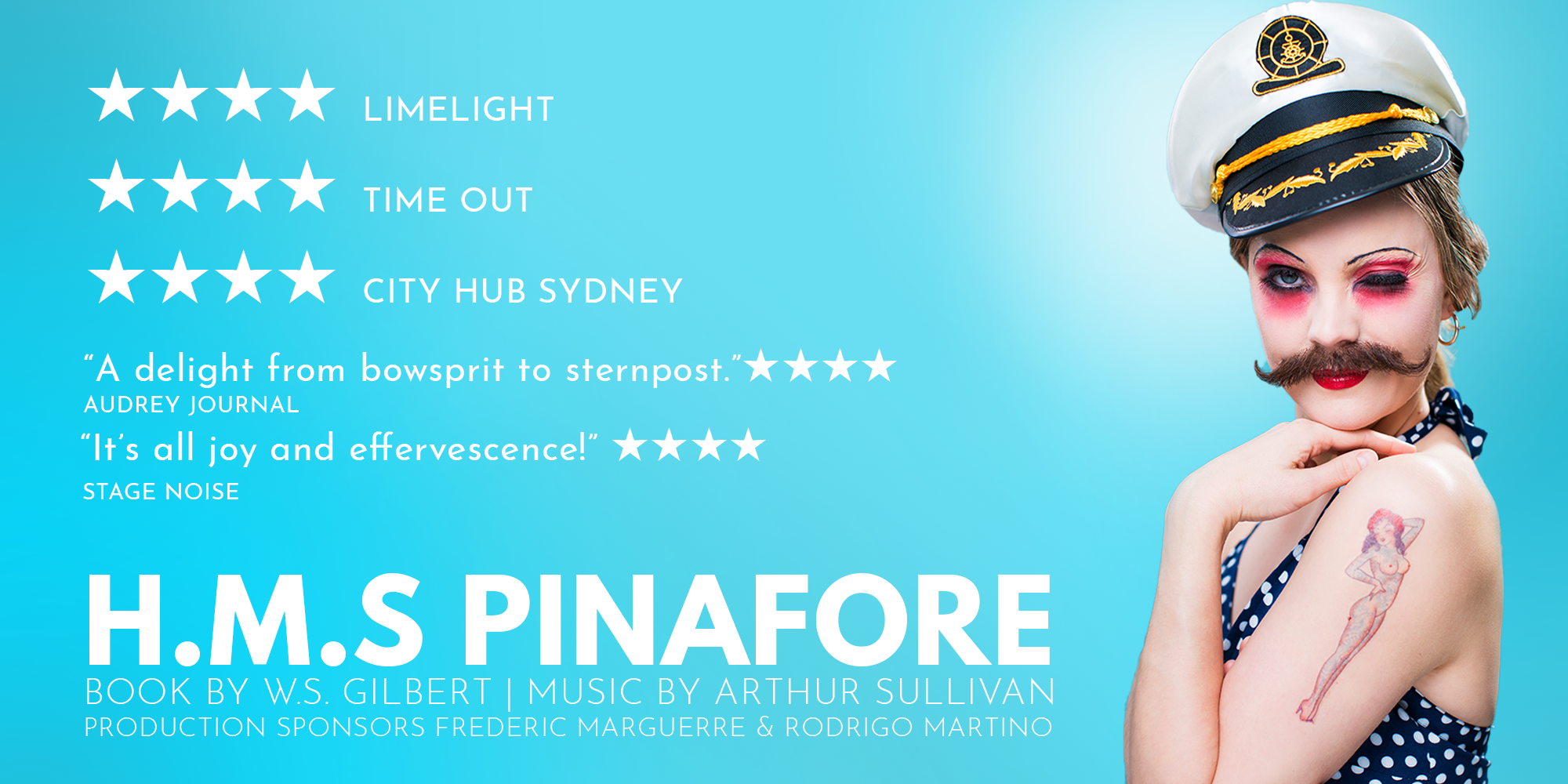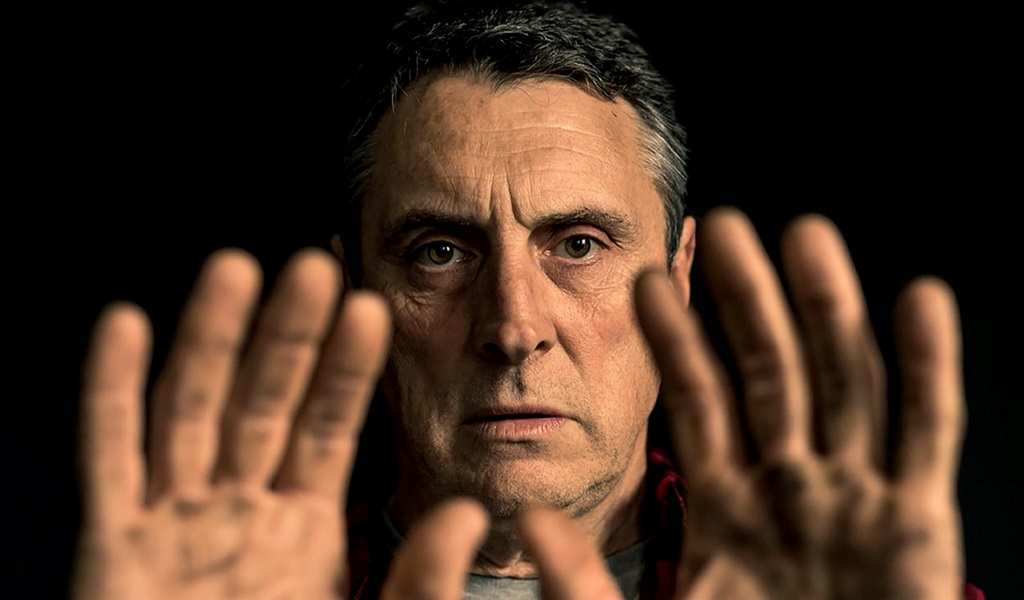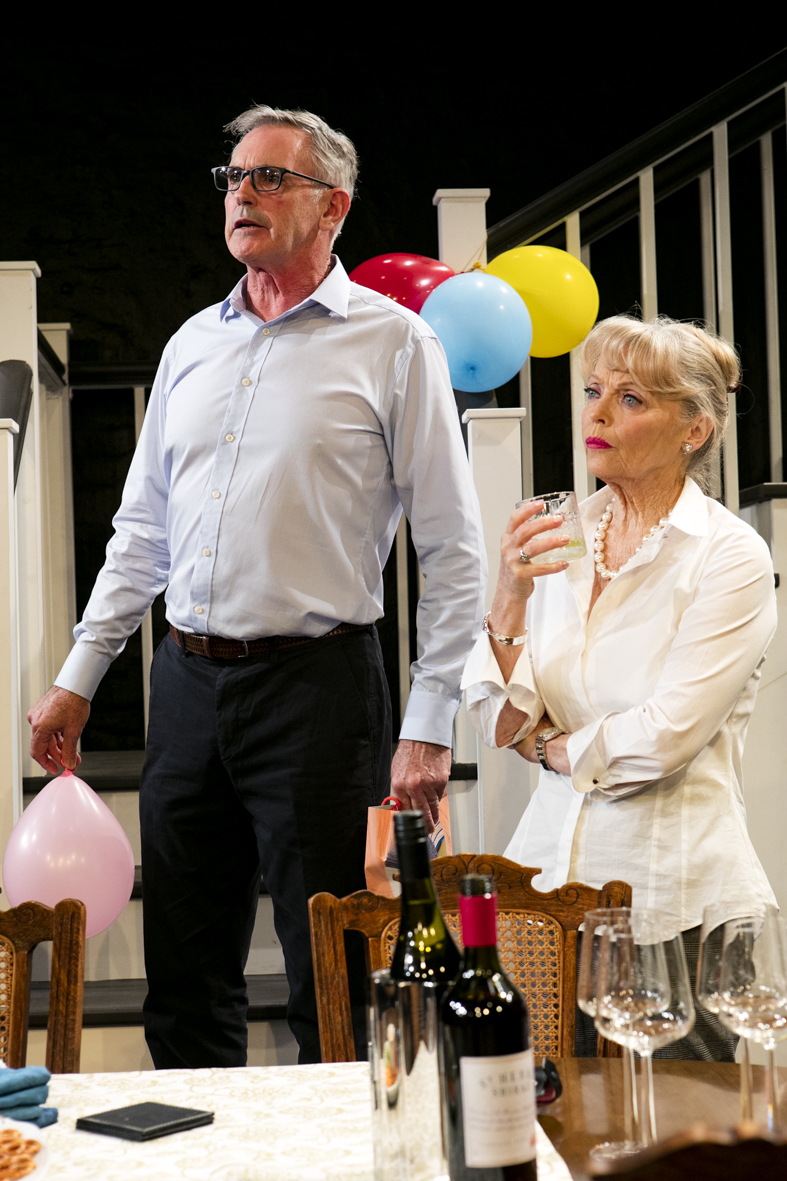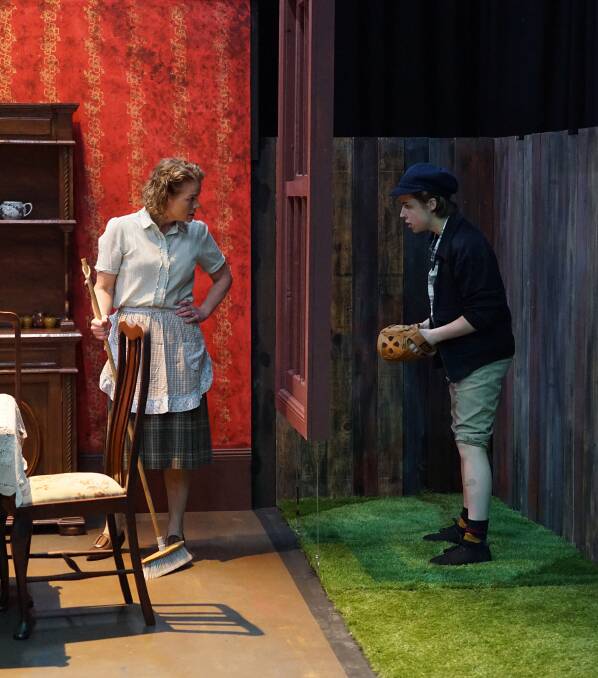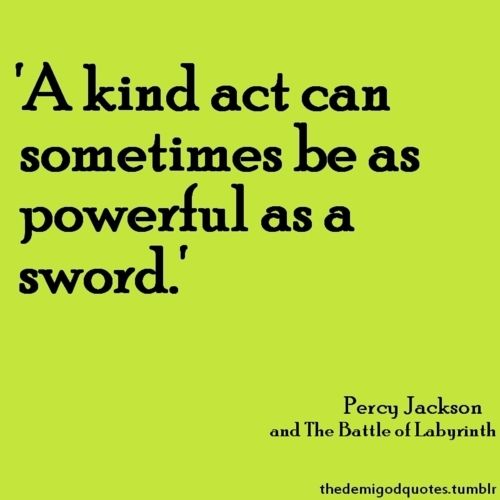- American Song - Red Stitch Actors' Theatre and Critical Stages Touring, Queanbeyan Performing Arts Centre: One man theatre performed by Joe Petruzzi, directed by Tom Healey, and written by Joanna Murray-Smith is a heart-felt and sensitive account of how to cope with unfathomable loss due to gun violence. It's not as preachy as it could easily be, and the dry-stone wall metaphor may be a little stretched, but it is so well-meant that I'll let it stand.
- Brighton Beach Memoirs - Canberra Repertory Society, Theatre 3: If I'm honest I'm a bit bored with stories about men being men or becoming men. I know this is not the fault of the writer (write what you know. right?) but rather the publishing houses and production companies who choose these stories over anything else. But the second rule of reviewing is 'review what is there; not what you want to be there' (the first is 'don't give away the plot'), and in that vein, this is a pretty fine production. Director Karen Vickery has obviously worked on diction and projection - despite the assumed American accents, I can still understand 90% of what the cast are saying - and has also imported a realism of action that works well with the home-spun tale of how a kid became a writer. The semi-autobiographical character of Eugene Jerome is played with plenty of energy and promise by Jamie Boyd, who looks to have a bright future if theatre survives in this town, and, as his mother, Victoria Dixon is dignified and powerful with an exceptional touch of insecurity. The family dynamics with their alliances, splits, and hierarchical divisions (three adults, three children and one teenager are crammed into a Brooklyn apartment) are highlighted brilliantly by Chris Baldock's set, which paints its own claustrophobic pictures.
- Family Values - Griffin Theatre Company, The Playhouse: Full of meaty goodness - political satire in its natural habitat with plenty of energy and dysfunctional dynamics. As he prepares for his 70th birthday, retired judge, Roger (Andrew McFarlane) holds forth smugly on a number of issues, including refugees, detention centres and boat people, in such a way that will obviously be challenged when his family arrive and question all of his assumptions. Great work by creative cast and crew brings this aphoristic text (David Williamson) to life.
- Hell Ship - Chester Creative, Queanbeyan Performing Arts Centre: Another one-man show (more likely due to financial considerations rather than viral ones) as Michael Veitch interprets a personal story about the doctor on board the 'fever ship', Ticonderoga, which arrived in Melbourne in 1852, and on which 170 of the 800 passengers (mainly Scottish families who had embarked seeking a new life) died from typhus. The doctor, James William Henry Veitch was Veitch's great-great grandfather, and he portrays his initial warmth, humour and subsequent survivor's guilt with the help of a sheet and some creative lighting.
- HMS Pinafore - Hayes Theatre Co, Queanbeyan Performing Arts Centre: This show is amazing! Kate Gaul has directed a masterpiece with respect and irreverence in equal measure. I suspected I would like it, but I was not expecting to love this as much as I do: I simply can't stop smiling. The star-crossed lovers; the mismatched marriages; the mistaken identities; the entirely relevant gender-reversals; the songs I didn't even know I knew; the hyper-realism of set and costume... Oh joy, oh rapture unforeseen; it is absolutely beautiful and an utter delight. In case you can't tell, I f*•^ing loved it.
Friday, 18 December 2020
Friday Five: Best Theatre of 2020
Monday, 14 December 2020
There is no Planet B: The Battle of the Labyrinth
In this fourth instalment in the Percy Jackson and the Olympians series,
Percy and his companions embark on quest through the Labyrinth, a terrifying
place created by Daedalus, which exists in another dimension. Like its
predecessors, the novel is an entertaining introduction to the world of Greek
mythology, featuring gods, heroes, monsters, half-bloods and mortals There are
great action scene set pieces, and an underpinning ecological message that keeps
the pace varied and adds a touch of depth to the adventures.
We meet many gods, who mostly
fight each other: the Olympians are in perpetual conflict with the Titans, ruled
by Kronos who is gathering his forces in secret. The gods with their games and their
prophecies are fickle and deceptive. Thy are omnipotent, yet they fight against
the heroes and half-bloods with their magical assistants. For example, Quitus
has a large and terrifying hellhound called Mrs O’Leary who can kill and chews
on a life-size squeaky pink rubber yak. There are magical swords, invisibility
caps, and charmed whistles, but we learn that humans’ knowledge can help as
much as (if not more than) magic.
In a gameshow sequence Annabeth has to answer the sphinx’s riddle: she thinks she knows it (the one about the ages of man), but it has been changed because everyone knows that one by now. “Canned applause blasted from the ceiling, as if there were invisible loud speakers. Spotlights swept across the room and reflected off the dais, throwing disco glitter over the skeletons on the floor.” The pop-culture meets horror story aesthetic is very similar to a Stephen King novel.
The satirical style is maintained throughout to counteract the hyperbolic escapades, and Riordan makes great use of the deadpan approach (pun intended), such as when he introduces the idea of Grover searching for Pan, god of the wild. It is Grover’s mission to find Pan, and if he fails, his life means nothing. “I’d never heard him sound so confident about anything, except maybe that cheese enchiladas were better than chicken enchiladas.” Pan’s wilderness is being destroyed by humans and development. Gods can’t die, but they can fade, as Pan tells Grover, “when everything they stood for is gone. When they cease to have power, and their sacred places disappear. The wild is so small now, so shattered, that no god can save it. My realm is gone.”
The remaining humans must work together for salvation. The name, Pan, originally meant rustic, but over the years it has come to mean all. “The spirit of the wild must pass to all of you now. You must tell each one you meet: if you would find Pan, take up Pan’s spirit. Remake the wild, a little at a time, each in your own corner of the world. You cannot wait for anyone else, even a god, to do that for you.” The environmental message is strong, suggesting that life (both of people and the planet) is fragile and that we should take more care of it. Hephaestus bemoans, “People are more difficult to work with than machines. And when you break a person, he can’t be fixed.”
Percy Jackson was hailed as the
new Harry Potter, and there are many similarities with J.K. Rowling’s wizard
world. Percy is different; he has ADHD, which means he can’t sit still and he
blurts things out – perhaps this is also an excuse for antisocial behaviour? His
dreams threaten to torment him, as did Harry’s. He goes to camp every summer,
fights to protect his friends, starts having human hormones, learns to accept
difference, and deals with monsters and magic that ‘normal’ humans can’t see.
Camp Half-Blood is very dangerous and people die there; each year there is a
quest, and everyone wants one so that they can prove themselves. Rachel asks
Percy, not unreasonably, “So you do this every summer? Fight monsters? Save the
world? Don’t you ever get to do just, you know, normal stuff?”
